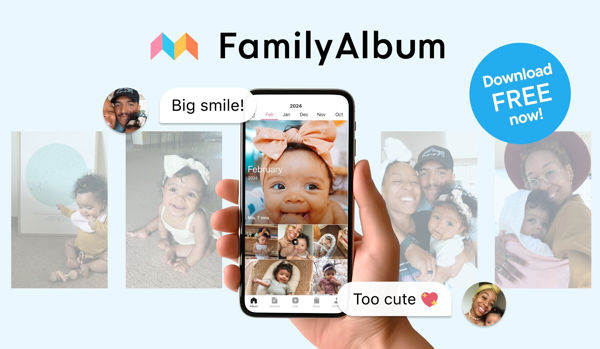Trying to conceive can take as little as one month. However, it can take others a lot longer. Every individual is different, and fertility can be affected by countless external factors, such as age, weight, caffeine, smoking, alcohol, medicines, and drugs and existing medical conditions - many of which are reversible, changeable, and solvable in order to give you the best chance possible at conceiving.
How Long Will It Take?
A health professional’s standard response to this question is always "up to one year". If you visit your GP with worries about your fertility, they won’t prescribe anything to assist with conception or refer you for further investigation until you have been trying to conceive for at least 1 year. This time frame also applies if you have a diagnosis that affects your fertility.
After this time, your GP will look at fertility to see if there are any issues and to give you a better idea of why you are struggling to conceive.
When trying to conceive, many things are taken into consideration: sperm quality, egg quality, intercourse timing, ovulation levels, and, of course, general health and age. It’s well known that women become less fertile as they age.
Can I Predict and Track Ovulation?
It is generally thought that ovulation is around day 14 of a standard 28-day cycle. We work from day one of your cycle, being the first day of your period, and it’s assumed that you will ovulate roughly 14 days later.
However, many women don’t have a standard cycle, so ovulation can be later or earlier than 14 days, which can make it difficult to predict.
In the first few months of trying, it's best to try and go with the flow and see what happens.
If you're six months down the line, you may want to start trying to work out your cycle and your ovulation date to be more precise with your timing. You can buy ovulation kits and a BBT thermometer, available online or from your local chemist. It can also be helpful to keep a diary of your cycle noting down the first and last days of your cycle, BBT, ovulation kit results, and any days you have intercourse.
Having sex around ovulation, or your 'fertile window' will be your best bet at conception. Up to 5 days before ovulation and 1 day after is known to be the 'magic window'.
What’s the Best Position to Get Pregnant?
Positions that allow for deep penetration are recommended for getting pregnant, as the sperm is deposited close to the cervix during ejaculation.
The missionary position is also recommended as it allows you to lay in the same place afterwards allowing sperm time to swim further towards your cervix.
It’s also advised to elevate your hips and legs after intercourse to let gravity work its magic.
Most importantly, try to enjoy yourself and don’t let the process become a chore.
Gender Swaying - Want to Conceive a Boy or Girl?
Gender selection during IVF is the ‘choosing’ of a girl or boy embryo, are the only true guarantee of selecting a baby’s gender. This method is illegal in the UK and several other countries, meaning you’ve got luck of the draw; a 50:50 chance of having either.
However, it is suggested by many books, websites, and experts out there, that there are natural ways in which you can try to conceive one or the other. This is known as 'gender swaying'. There are diets, positions, timings, and all sorts promising varying levels of success.
The most talked-about are the Shettles and Whelan methods. These methods promote 57-90% success and are similar in that they both say it’s more likely you’ll conceive a boy by having sex the day before, or on your day of ovulation. The theory being that the boy sperm (Y chromosome) swims fast, is strong, but doesn’t live long, so needs to be deposited when the egg is released for maximum chances.
In contrast, it is thought that to conceive a girl, you should have sex 2-4 days before ovulation as the girl sperm (X chromosome) isn’t as strong, doesn’t swim as fast, but can live longer on its journey to meet the egg, and therefore will be waiting around for the egg to release, while the boy sperm have likely died off.
This method isn’t scientifically proven or guaranteed to give you the outcome you may want, but your chances of conceiving a baby of either sex greatly increases the closer to ovulation you have intercourse, that much is known.
Infertility and Relationships
Relationships can be strained if conception is taking a long time, and we all react to this in different ways. One of us may be obsessed with the process, whilst the other may keep their feelings inside. We may therefore think the other person isn’t as committed to the process of conceiving when it isn't the case. A lack of understanding of one another’s frustrations and emotions can cause arguments which can make you feel lonely and distant.
Make sure you spend time together. Talk about the situation, but make sure it's not all you talk about. Remember why you fell in love, and why you wanted to start a family together, the rest will come.
Stress and Fertility
It’s thought that there is a relationship between stress and getting pregnant, but it’s easier said than done to relax when you are going through fertility issues.
Some of the ways to help you to relax include:
- Acknowledging that you and your partner may be reacting differently to the situation.
- Considering feelings of sadness and grief that may be present when you aren't successful.
- Not giving up on your interests and ‘normal’ life.
- Taking a break from trying to conceive.
- Looking at hypnotherapy, yoga, and meditation to focus your mind.
Keep talking to one other and get support if needed.






